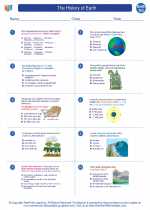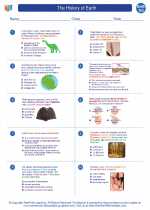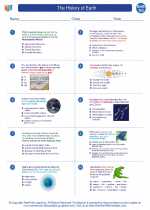Nutrient Cycles
Nutrient cycles are biogeochemical cycles that describe the movement and exchange of essential nutrients and elements within an ecosystem. These cycles are crucial for the functioning of ecosystems as they ensure that vital nutrients are recycled and made available for organisms to use. The main nutrient cycles include the carbon cycle, nitrogen cycle, phosphorus cycle, and water cycle.
Carbon Cycle
The carbon cycle is the process by which carbon is exchanged between the atmosphere, land, and oceans. It involves processes such as photosynthesis, respiration, decomposition, and combustion. Carbon is taken up by plants during photosynthesis, transferred to consumers when they eat the plants, and released back into the atmosphere through respiration and decomposition.
Nitrogen Cycle
The nitrogen cycle is the process by which nitrogen is converted between its various chemical forms. It involves processes such as nitrogen fixation, nitrification, and denitrification. Nitrogen is essential for the production of proteins and nucleic acids in living organisms, and the nitrogen cycle ensures that it is made available for use by plants and other organisms.
Phosphorus Cycle
The phosphorus cycle is the process by which phosphorus is cycled through the lithosphere, hydrosphere, and biosphere. Phosphorus is an essential component of DNA, RNA, and ATP, and the phosphorus cycle involves processes such as weathering of rocks, uptake by plants, and transfer to consumers through the food chain.
Water Cycle
The water cycle is the continuous movement of water between the atmosphere, land, and oceans. It involves processes such as evaporation, condensation, precipitation, and runoff. The water cycle ensures that water is constantly recycled and made available for use by living organisms.
Study Guide
- Define the term "nutrient cycle" and explain its importance in ecosystems.
- Describe the processes involved in the carbon cycle and their significance.
- Explain the role of nitrogen in living organisms and how the nitrogen cycle ensures its availability.
- Discuss the sources of phosphorus in the environment and how it is cycled through ecosystems.
- Outline the different processes involved in the water cycle and their impact on the availability of water for organisms.
- Compare and contrast the carbon, nitrogen, and phosphorus cycles, highlighting their similarities and differences.
- Discuss the potential impacts of human activities on nutrient cycles and the environment.
Understanding nutrient cycles is essential for comprehending the interconnectedness of ecosystems and the importance of maintaining nutrient balance for the well-being of all organisms. Mastery of these concepts will provide a solid foundation for understanding ecological systems and environmental sustainability.
.◂Earth Science Worksheets and Study Guides High School. The History of Earth

 Worksheet/Answer key
Worksheet/Answer key
 Worksheet/Answer key
Worksheet/Answer key
